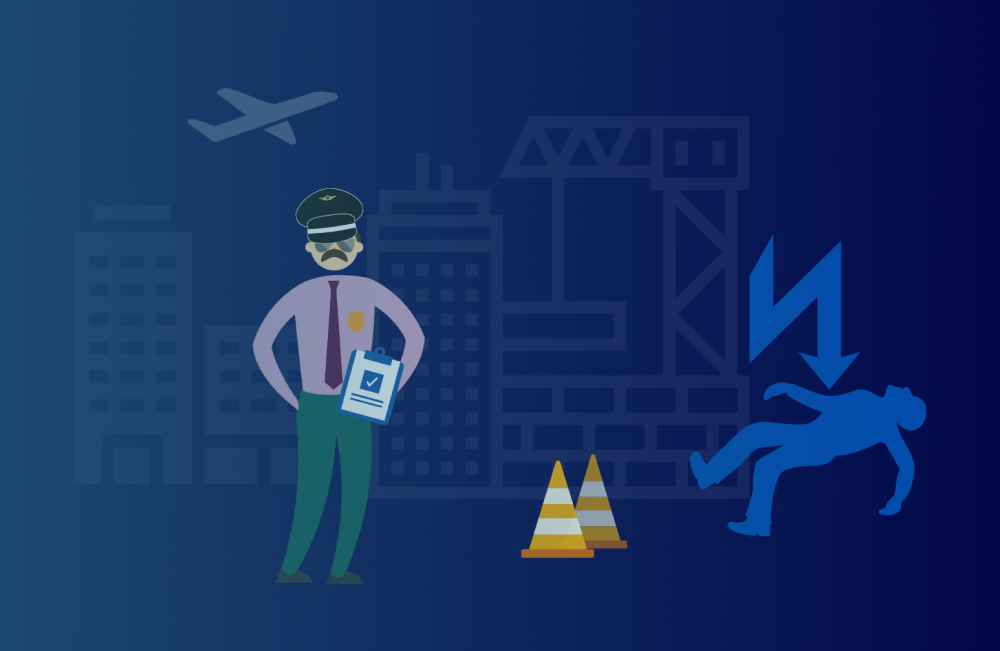Keep up with the latest in WHS and compliance.

Honestly, is Your WHS Policy as Good as it Could be?
Policies are essential in the workplace as they clarify the standards expected of workers and help employers manage staff more effectively. As such, WHS policies are very important for most organisations, as they help define what is acceptable from a health and safety perspective.

Your Brain's 'Auto-Pilot' and its Effect on Health and Safety at Work
When we think about health and safety in the workplace, it’s easy to focus our efforts on processes, controls and compliance standards. The systems we put in place are logical and comprehensive that should work efficiently and according to design.

Part 2 - The Responsibilities of an Officer - Are You Sure You're Not One Under WHS Law?
The definition of an officer is stated clearly in the WHS Act. You are someone who makes significant business decisions and can alter the business's financial position. Who does that make you, though? Are you a business owner, a director or perhaps a senior project manager? Are you certain of your duties under WHS law?

Part 1 - The Responsibilities of An Officer - Due Diligence and Reasonably Practicable
Being an officer under WHS law is a significant responsibility in Australia. You have a legal duty to comply with WHS obligations and to take reasonably practicable steps towards compliance. That means continually and comprehensively ensuring that your workers, volunteers and visitors are safe.

As Leaders, How do We Drive Workplace Safety?
John C. Maxwell said, "a good leader is one who takes a little more than his share of the blame and a little less than his share of the credit." When it comes to safety, our role as leaders is an incredibly important one.

Workplace Safety Before Profit - Simple, Right?
Workplace safety is an integral responsibility of any organisation. If we allow standards to slip, it firstly puts our workers in serious danger, and often the business at risk of significant financial and reputational damage. With all that at stake, there’s no way that anyone would intentionally put profit first, is there?

Types of Workplace Emergencies and How to Handle Them
When an emergency occurs in the workplace, seconds can often be the difference between some extra paperwork and risk to life and limb. The very nature of emergencies means you never know when you may be required to act, so understanding the types of emergencies that may occur, and the steps that should be taken to handle them is crucial.

The Importance of Risk Control Measures in the Workplace
Keeping the workplace safe and free from serious accidents and injuries for all employees begins with identifying and assessing the risks. Before you can begin to control the risks, you have to know what they are and how they interact with day-to-day operations.

Crisis Communication — After the incident
Mobile communication methods allow information to travel faster than ever before. With a camera in everyone’s pocket and instant access to social media sites and apps (the likes of Facebook, Twitter, and Instagram, to name a few), news of an event travels quick.

WHS Incident Reports — Everything you need to know
Incidents that compromise the safety of workers can happen in any business, regardless of its size, location or industry. When an incident does occur, it’s important to have it reported formally. Reporting an incident is the first step in the incident management process.

The Importance Of Health and Safety Professionals
Workplace safety should be of paramount concern to everybody. There are obvious and serious risks of injury and fatalities, but in addition, poor workplace safety can cost companies substantial time and money and leave employers open to expensive legal liability.

Why businesses should be concerned about Health and Safety
When we hear about health and safety initiatives in the workplace, most of us are hoping that there aren’t going to be any new processes introduced that will make our workdays less efficient.
